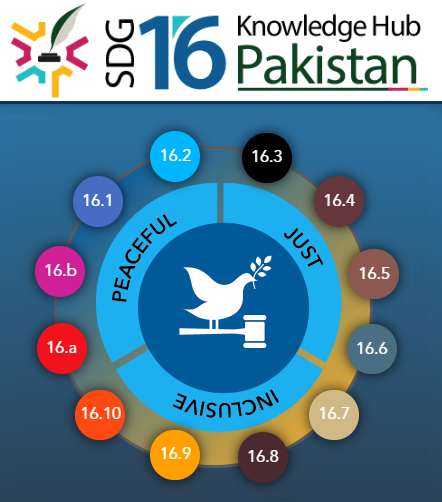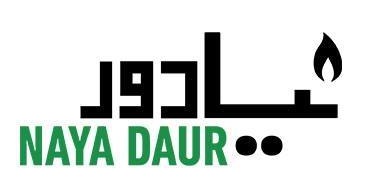

International Day for Judicial Well-being: A Global Call for Action (4 Mar, 2025)
Pakistan Ranks 129 out of 142 in the World Justice Project Rule of Law Index (26 Oct, 2024)
2024 Trafficking in Persons Report: Pakistan (24 June, 2024)
Pakistan ranks second-last in WEF Global Gender Gap Report 2024 (7 Mar, 2025)
Here's how you can get checked for coronavirus in Pakistan

Wed, June 10, 2020
Since December last year, the coronavirus has spread nearly all over the world, causing hundreds of thousands of deaths as countries ramp up testing capacities to identify patients and bring the disease under control.
Federal Minister Asad Umar has said that Pakistan at the moment can conduct 14,000 tests per day and aims to be conducting 20,000 tests daily. Khyber Pakhtunkhwa is authorising private laboratories to conduct tests in a bid to increase capacity while the Sindh government has directed to conduct random testing of people at grocery stores and vegetable shops.
Members of the medical fraternity insist that that the war against Covid-19 can only be won by increasing testing capacity, isolating infected individuals and equipping the healthcare staff with proper protective gear.
“We have a simple message for all countries: test, test, test.”
These are the words of Dr Tedros Adhanom Ghebreyesus, the director-general of the World Health Organisation.
How to get checked
To help people who feel like they might have the symptoms, Dawn.com reached out to health officials to understand the process through which one can be tested for the virus for free.
Here's what you need to know:
-
A patient suspecting they are manifesting symptoms of coronavirus should visit a government designated public or private hospital. According to National Institute of Health (NIH) official Dr Mumtaz Ali Khan, all district headquarter hospitals and tertiary care hospitals across the country are equipped to collect samples for coronavirus.
-
At the hospital, a doctor will check the patient for symptoms to determine if he or she may have coronavirus, according to NIH Executive Director Maj Gen Aamir Ikram.
-
The patient will be asked a set of questions regarding their travel history as well as of those they have been in close contact with.
-
If the doctor rules out suspicion of coronavirus, the patient will be sent back.
-
If the doctor comes to the conclusion that the patient is manifesting symptoms, a swab of their saliva is taken and sent to one of the designated facilities that have coronavirus testing equipment. This testing will be done free of cost, said Ikram.
-
Other government facilities around the country are also testing free of cost. However, some private labs are also independently testing individuals for the virus against a fee.
Facilities conducting tests for coronavirus
Sindh
- Advanced Diagnostic Centre - Karachi
- Aga Khan University Hospital - Karachi
- Chughtai Lab, Karachi
- Dow University of Health Sciences, Ojha - Karachi
- Dr Ruth Pfau Civil Hospital - Karachi
- Ziauddin Hospital - Karachi
- Indus Hospital - Karachi
- PNS Shifa - Karachi
- SIUT - Karachi
- Drive-through testing facility - Karachi
- Gambat Institute of Medical Sciences - Khairpur
- Liaquat University of Medical and Health Sciences - Hyderabad
Punjab
- Provincial Public Health Reference Lab (PPHRL), PHSD
- Shaukat Khanum Cancer Hospital - Lahore
- Pakistan Kidney And Liver Institute - Lahore
- Nishtar Hospital - Multan
- Chughtai Testing Lab
- National Institute of Health - Islamabad
- Institute of Public Health - Lahore
- Allied hospital - Faisalabad
- Civil Hospital - Bahawalpur
Khyber Pakhtunkhwa
- Khyber Medical University - Peshawar
- Hayatabad Medical Complex - Peshawar
- Ayub Teaching Hospital - Abbottabad
- Saidu Teaching Hospital - Swat
- Mufti Mehmood Memorial Teaching Hospital - DI Khan
- Rehman Medical Institute - Peshawar
- North West General Hospital - Peshawar
- Anwar lab - Peshawar
Balochistan
- Fatima Jinnah Hospital - Quetta
Azad Jammu and Kashmir
- Abbas Institute of Medical Sciences - Muzaffarabad
- Sheikh Khalifa bin Zayed al Nahayan Hospital (CMH) - Rawalakot
- Divisional Headquarters Hospital - Mirpur
Gilgit Baltistan
- All district hospitals in the area are equipped to collect samples which are then sent to a lab in Gilgit or Skardu for testing
In addition to these facilities, citizens can visit their nearest public tertiary healthcare centre or district headquarter hospital for screening.
What to do if you test positive
The federal government in its guidelines to provinces said that patients showing mild symptoms of the virus would be isolated at their homes while only those requiring medical help would be treated at hospitals.
According to standard operating procedures (SOPs) issued by the federal health ministry, the move to isolate these patients at home would help "ensure control of the disease and reduce the burden on the healthcare system".
The guidelines advise patients to limit contact with other people and maintain a distance of six feet if they do need to go out. They also advise patients to take all the necessary precautions and cleaning and disinfecting surfaces they touch.
However, patients are advised to visit hospitals if their symptoms worsen.
"You should not hide this disease at all. The sooner you get help, the safer you will be," said Sindh Health Minister Dr Azra Fazal Pechuho, appealing to people — especially those who have underlying health conditions such as diabetes, heart or kidney problems — to "immediately" come to hospital as soon as they get ill.
Copyright © 2026 pjn.org.pk









